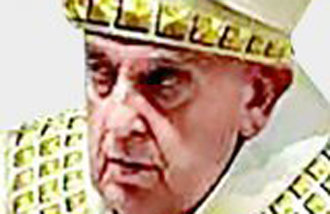Six-Way Talks End Without Agreement
Six-Way Talks End Without Agreement
Posted December. 23, 2006 06:38,
The six-party talks that resumed after a 13-month pause adjourned on December 22 without reaching an accord on freezing North Koreas nuclear weapons program.
Due to the conflict between North Korea and the U.S., with the former requesting its accounts at Banco Delta Asia in Macao be unfrozen in exchange for freezing its nuclear weapons program, and the latter attempting to separate the two issues of North Koreas nuclear weapons and the BDA account, no schedule was fixed for the next roundtables.
It was also revealed that coordinating the draft of the Chair`s Statement, which requires unanimity of the party nations, would cost a considerable amount due to their disagreements on the assessment of the progress of the six party talks.
Persuading the North in Vain-
During the second phase of the fifth six party roundtable that took place in Diaoyutai, Beijing, over five days from December 18, South Korea and the U.S. held a number of bilateral talks with North Korea to persuade North Korea to abandon its adherence to BDA issue first policy.
Also on December 22, the last day of the talks in Diaoyutai, South Korea held bilateral meetings with the U.S. and China and went on to contact North Korea, and China also attempted final bilateral negotiations, but both were futile. North Korea turned down the bilateral negotiations proposed by the U.S.
Accordingly, the Chair`s Statement presented by China, chair nation of the six party talks, The party states had meaningful conversations on how to fulfill the 919 Joint Statement, highlighting no tangible results at the six-party talks.
After the talks were closed, North Korea had a press conference at the Diaoyutai Hotel in Beijing and denounced the U.S. for refusing the request to lift the financial sanctions applied against North Korea.
Dim Future for the Six Party Talks-
In the Chair`s Statement it presented in the closing ceremony held in the afternoon on the same day, China, the chair nation of the six party talks, said, [the party states] agreed to reopen talks at the earliest opportunity possible.
But some even anticipate that the future of the six party talks is dim with the dissonance in the views of North Korea and the U.S. on the measures to solve the BDA issue and the initial fulfillment actions and the corresponding actions.
North Korea and the U.S. opened working group sessions on December 19 and 20 shifting places between the U.S. embassy and the North Korean embassy in Beijing to discuss the BDA issue, but failed to reach accordance since North Korea denied the findings by the U.S. Treasury Department.
Therefore it is expected that the next six party talks, even if they are held, will be nothing more but a duplicate of previous ones as long as North Korea and the U.S. keep running in parallel on the BDA issue and fail to solve the disagreement even in the second working group phase planned in January next year in New York.
Christopher Hill, Assistant Secretary for East Asian and Pacific Affairs and the U.S. chief delegate to the six party talks, met with journalists on December 22 and said, We need to make clear whether there was any progress during the talks and well also see whether the progress, if any, is helpful to us. Kenichiro Sasae, director general of the Asia and Oceania Affairs Bureau of the Japanese Foreign Ministry and the Japanese chief delegate to the six party talks, said this day, Questions will be raised on the reliability of the six party talks.
On December 21 (local time) in Washington, U.S. State Department Spokesman Sean McCormack said, Sticking to principles in the six party talks has to bear fruits. Otherwise we will have to reevaluate the special diplomacy track (the six party talks). This means that the U.S. can put an end to the six party talks and deploy lean-to-one-side policy in case North Korea adheres to the prior settlement of the BDA matter.
gun43@donga.com
Headline News
- Korean president faces debate limitations unlike U.S. counterpart
- KEPCO's first quarter profits failed to meet market expectations
- Teenagers are left out of discussions about national pension
- 2 consultative bodies submit minutes regarding increasing number of medical students
- Woo Sang-hyuk's rivalry and friendship transcend borders







